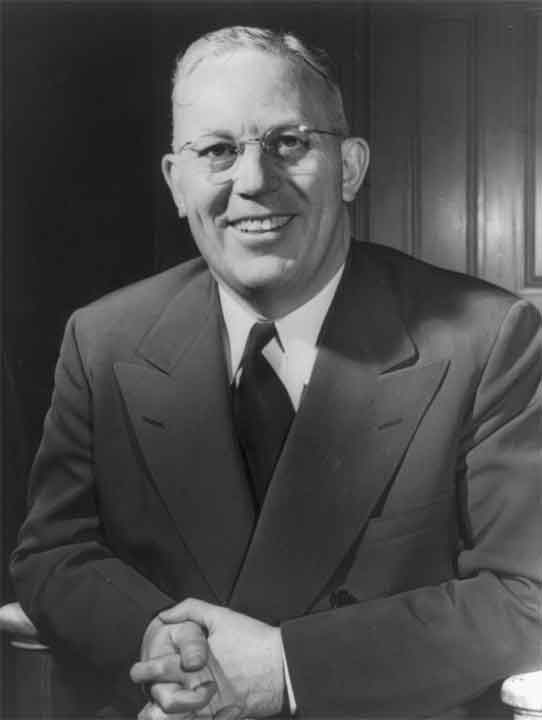Earl Warren
1891- 1974
Chief Justice of the Supreme Court

Distinguished jurist Earl Warren was born in Los Angeles California on March 19, 1891. He graduated from the University of California and became a lawyer. He was elected State Attorney General of California as a Republican and earned a reputation as a serious crime fighter.
Warren was so popular that, since candidates could enter any party's primaries, he won both the Republican and Democratic nominations for Attorney General. Later, he accomplished the same feat when running -- and winning -- the Governorship of California in 1942.
Warren was unsuccessful in his 1948 bid for the Vice Presidency with running mate Thomas Dewey. Although he ran for the Republican Presidential nomination in 1952, he eventually withdrew and endorsed candidate Dwight D. Eisenhower.
When Supreme Court Chief Justice Fred Vinson died, President Eisenhower appointed Warren to replace him in 1953. Eisenhower later called the appointment "the biggest damn-fool mistake I ever made."
Warren, who was a Republican and, initially, a Conservative, became a Liberal when he joined the Court. The Supreme Court under Warren was an activist court, handing down a number of landmark decisions.
Warren wrote many decisions himself, including Brown v. Board of Education, dealing with school desegregation, and Miranda v. Arizona, dealing with the right not to self-incriminate. The Court heard Cooper v. Aaron in a special summer session, as a result of which the justices decided that there could be no further delays in the integration of schools in Little Rock, Arkansas after the Brown decision.
Warren was also head of the Warren Commission, which investigated the assassination of President John F. Kennedy. In 1969, Warren retired from the Court.
American Liberals generally applaud Warren as an upholder of civil liberties. Nevertheless, many Conservatives feel that he led the Court to overstep the boundaries of its constitutional role, protecting the rights of criminals at the expense of law enforcement officers.
Taylor has won two Academy Awards in her career, in 1960 for Butterfield 8 and again in 1966 for Who's Afraid of Virginia Woolf. In recent years, Taylor has used her fame to publicize and raise money for important causes, especially AIDS research.
 >
>